Chengdu Camphor Tea-Smoked Duck (樟茶鸭), a jewel of Sichuan cuisine, captivates with its golden-red hue, tender meat, and intoxicating aroma of camphor wood and tea leaves.
This dish, rooted in imperial history and perfected by Sichuan’s culinary artisans, offers a sensory journey through China’s rich gastronomic heritage.
Origins and Legend
Born in the late Qing Dynasty, Camphor Tea-Smoked Duck traces its roots to Huang Jinlin, a Sichuan-born chef in the imperial court. Legend says he innovated traditional smoked duck by infusing it with fragrant Sichuan camphor leaves and jasmine tea, creating a dish adored by Empress Dowager Cixi.
By the 20th century, it became a staple in Chengdu’s street food scene, sold near Wenshu Monastery and later elevated to banquet status. In 1954, it gained global fame when Premier Zhou Enlai served it to Charlie Chaplin during the Geneva Conference, who praised it as a “world-class delicacy”.
Crafting the Dish: A Four-Step Art
The duck’s magic lies in its meticulous preparation:
1.Marination:
Fresh duck is soaked in brine with Sichuan peppercorns and rice wine to remove gaminess.
2.Smoking:
A blend of camphor leaves, tea, cypress branches, and sawdust smolders to infuse the meat with earthy, floral notes—a step so critical that improper smoking risks bitterness.
3.Steaming:
Slow steaming softens the meat while locking in smoky flavors.
4.Frying:
A quick deep-fry crisps the skin without overcooking, achieving a balance of crunch and juiciness.
The result? A crispy, amber-hued exterior and succulent, aromatic meat often served with sweet bean sauce, scallions, or lotus-leaf pancakes for contrast.
Cultural Significance
More than a dish, Camphor Tea-Smoked Duck embodies Sichuan’s ingenuity. Once a humble street snack, it now stars in festivals and high-end dining, symbolizing the province’s ability to transform simple ingredients into luxury.
In 2020, it was listed among Sichuan’s intangible cultural heritage items, with chefs like Wu Jianguo reviving traditional recipes in Chengdu’s historic alleys
Why It Stands Out
- Unique Flavor: Unlike Beijing roast duck, its smokiness comes from natural botanicals, not open flames.
- Nutrition: Rich in protein and B vitamins, duck meat offers a healthier indulgence with unsaturated fats.
- Versatility: Adaptable to modern tastes—some chefs use oak or fruitwood for milder smoke.
How to Experience It
Visit Chengdu’s Kuanzhai Alley or Wenshu Monastery area for authentic versions. For home cooks, simplify the recipe by using pre-smoked duck and pairing it with steamed buns or pickled vegetables.
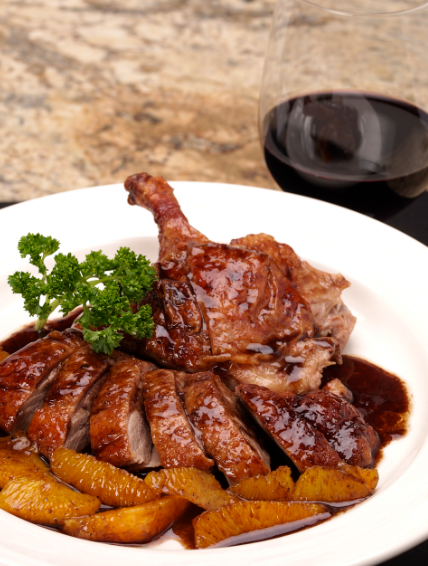
Chengdu Camphor Tea-Smoked Duck is a testament to Sichuan’s culinary legacy—where history, aroma, and craftsmanship converge. Whether enjoyed in a bustling market or a Michelin-starred restaurant, its smoky allure promises an unforgettable taste of China’s imperial and folk traditions.

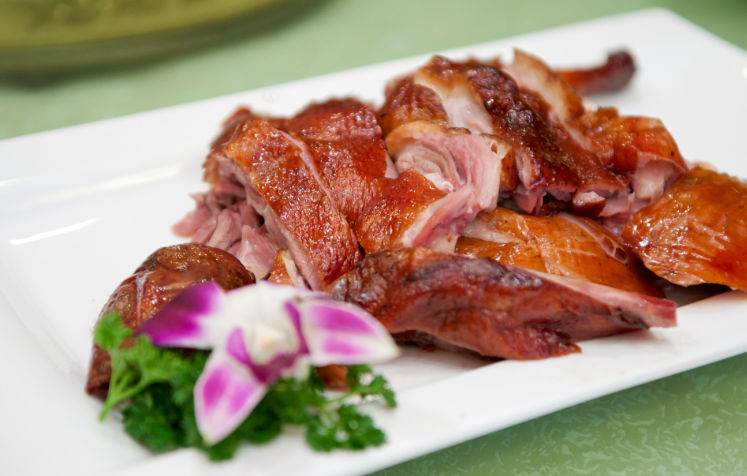
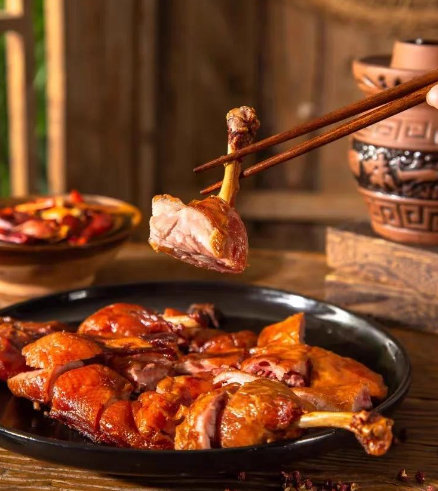
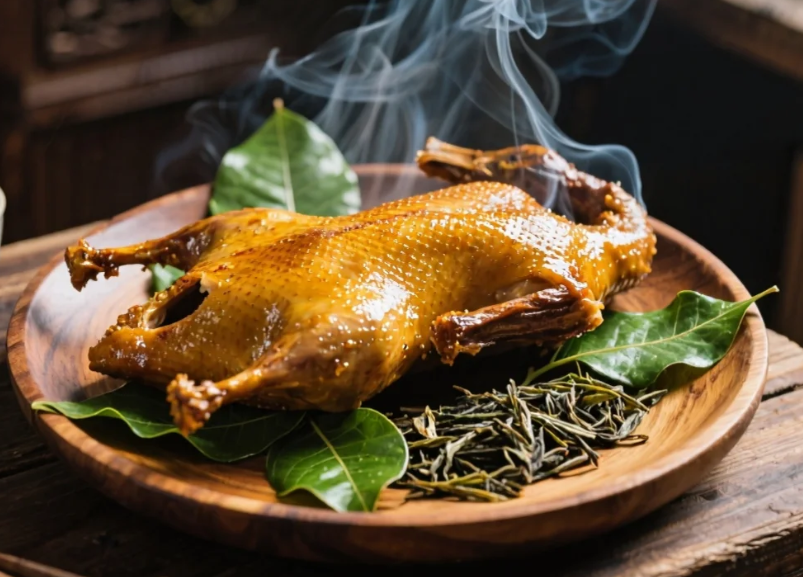
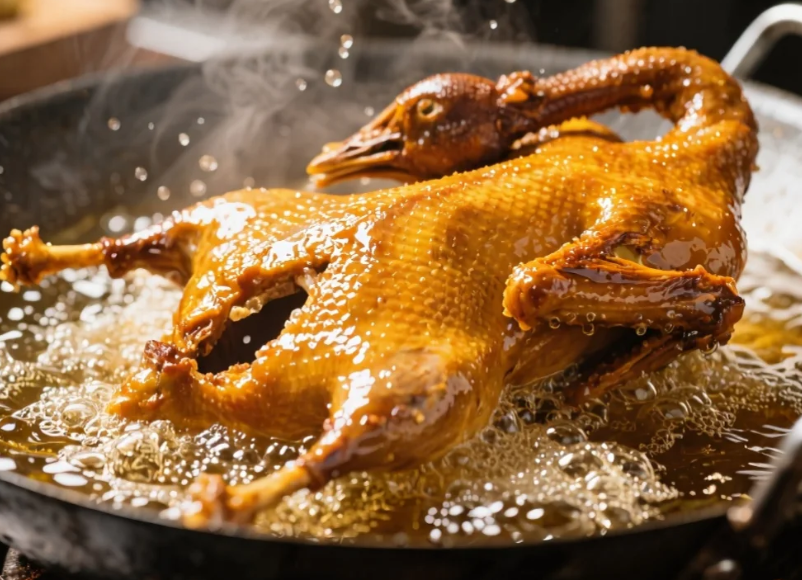
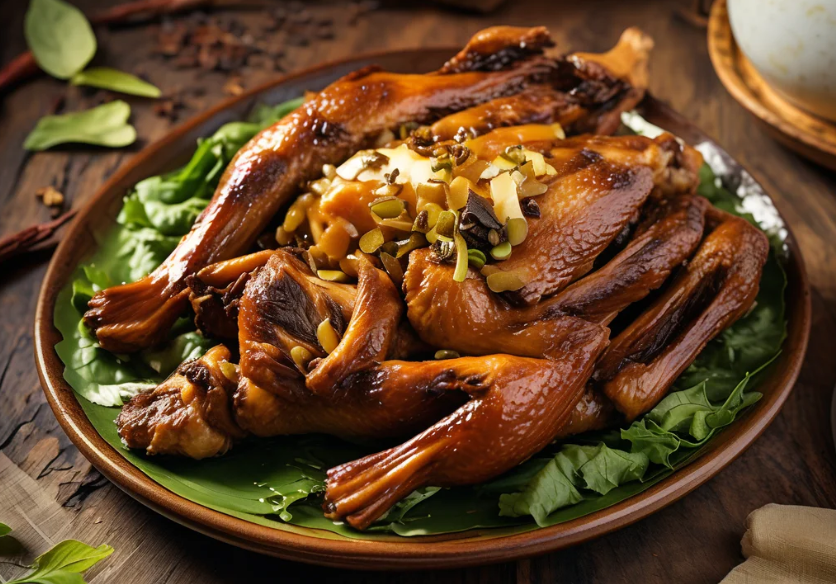













No comments yet